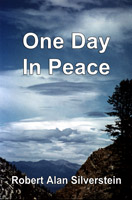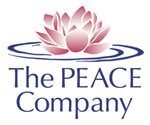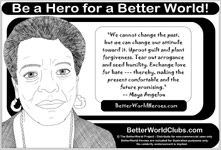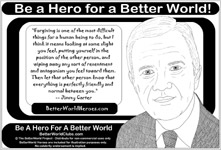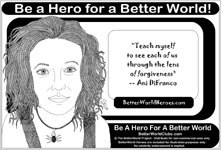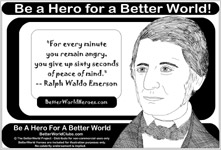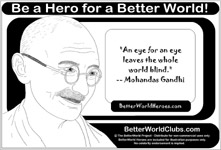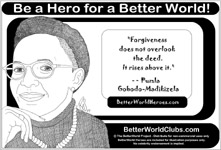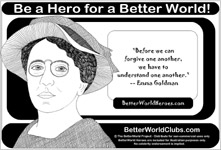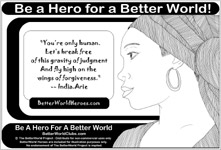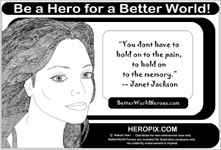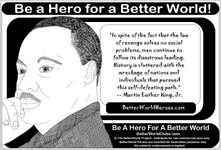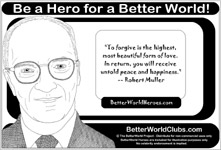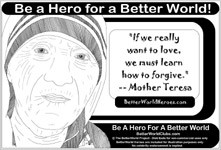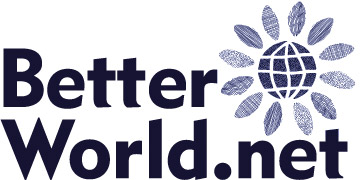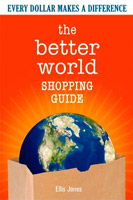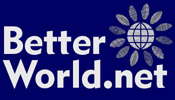Forgiveness
is one of the most important first steps to ending conflicts in our families,
our communities and between nations. Most conflicts begin because one person or
group feels they have been wronged by another person or group.
Forgiveness
is not glossing over a problem or excusing it without consequences, or letting
someone continue to treat you badly. It's always important to first get out of
a dangerous situation, such as a violent or abusive relationship. Forgiveness
does not have to include reconciliation, where both sides work to create a healthy
and peaceful ongoing relationship. Forgiveness is a personal decision to not allow
anger, hurt and resentment to control your life, and to forgive someone who has
wronged you, even if they don't deserve it.
Learning
to let things go and forgive isn't always easy, but when we truly forgive, it
helps foster better health, better relationships, a deeper sense of purpose and
self worth and a feeling of connection to others. The healing power of forgiveness
reached international attention after the end of apartheid in South Africa when
the Truth and Reconciliation Commission helped to bring the bitterly divided nation
together after decades of segregation and violence.
Advice
columnist Ann Landers is responsible for popularizing the April 2 celebration
of Reconciliation Day, as a day to try to try to patch up a broken or strained
relationship. In South Africa, Reconciliation Day is celebrated on December
16.
The Worldwide
Forgiveness Alliance promotes the first Sunday in August as International Forgiveness
Day, hoping to spread awareness about the healing power of forgiveness to
create "a safer, more joyful and peaceful world."




